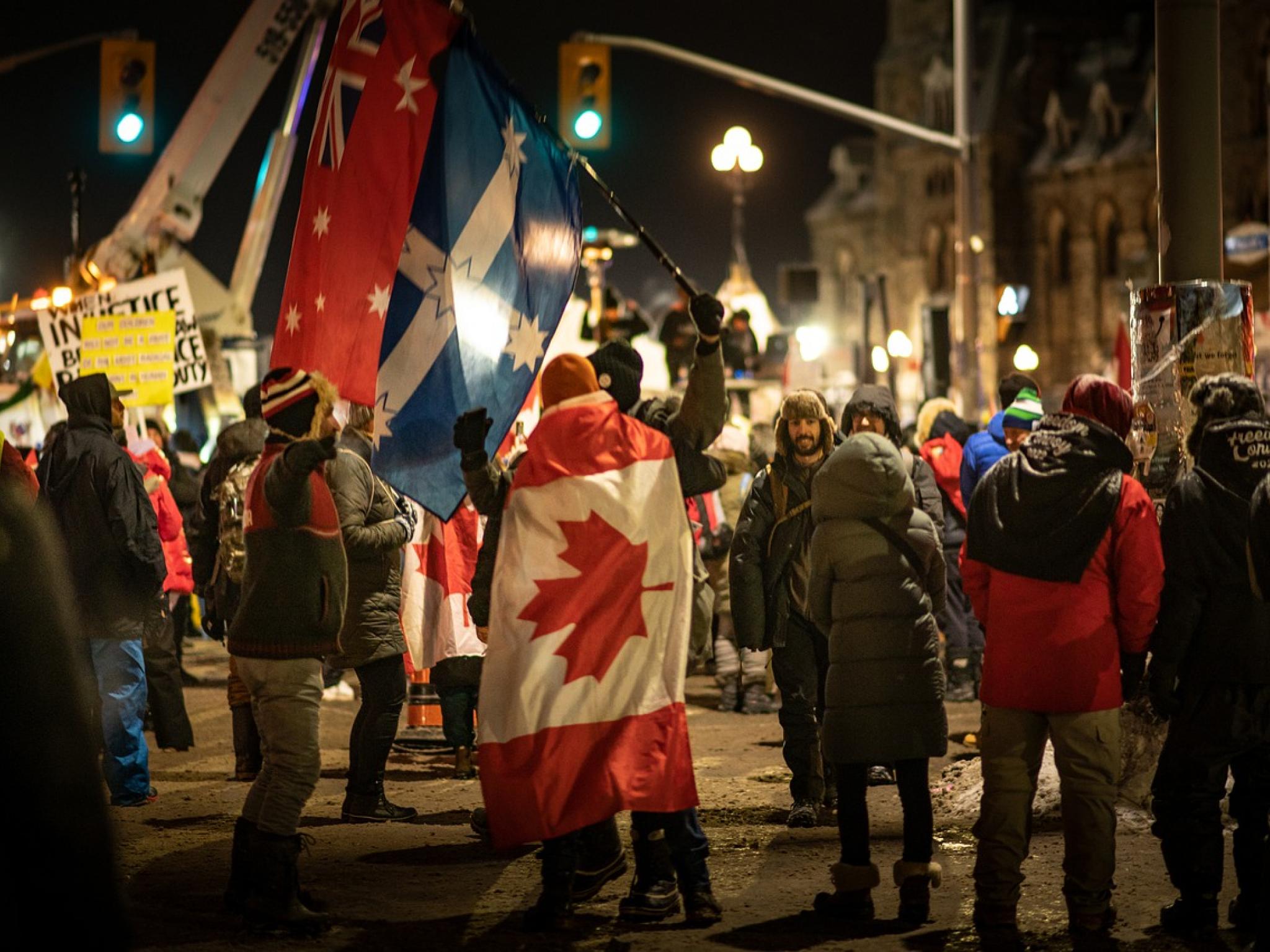
The administration of Canadian Prime Minister Justin Trudeau has instructed the nation’s banks to unlock financial accounts belonging to individuals who participated in the so-called Freedom Convoy of truckers whose protest against vaccine mandates brought the nation’s capital city of Ottawa to a standstill.
What Happened: On Feb. 15, Trudeau invoked the Emergencies Act in response to the disruptions created by the convoy. This action enabled the nation’s banks and the Financial Transactions and Reports Analysis Center of Canada to monitor transactions and freeze accounts as a means to cut off funding support to the protest movement.
According to The Globe and Mail, the Emergencies Act measures only impacted transactions made following the invocation of the act. As of Feb. 21, the Royal Canadian Mounted Police (RCMP) reported 219 bank accounts and other financial products belonging to 57 people or organizations had been frozen.
The RCMP also stated “the account of a payment processor for a value of $3.8 million by a financial institution,” but it did not identify who owned the account. However, there were media reports from Canadians whose accounts were frozen after making donations to crowdfunding pages supporting the protests.
Related Link: Bitcoin Donated To Canadian Truckers On The Move Despite Government's Efforts To 'Freeze' The Coins
What Happened Next: The freezing of accounts was met with an overwhelmingly negative response by Canadians and sparked the threat of legal challenges by the Canadian Civil Liberties Association and the Canadian Constitution Foundation.
The Wall Street Journal reported that Canadian Finance Minister Chrystia Freeland defended the action, insisting that her agency made it “very clear that we would be following the money” that was helping to support the protesters.
“The way to get your account unfrozen is to stop being part of the blockade and occupation,” she said.
Canada’s five major banks — Bank of Montreal (NYSE:BMO), Bank of Nova Scotia (NYSE:BNS), Canadian Imperial Bank of Commerce (NYSE:CM), Royal Bank of Canada (NYSE:RY) and Toronto-Dominion Bank (NYSE:TD) — declined to offer public comments on the account freezing actions. The Canadian Bankers Association issued a statement insisting that very few individuals were locked out of their accounts.
“The government has indicated that the measures in the Emergencies Act are intended to be temporary and focused only on a narrow group of individuals and entities involved in specific activities covered by the order,” said Mathieu Labrèche, a spokesperson for the trade group. “The vast majority of customers are not impacted by these measures.”
Photo: Ana Krach/Pixabay.







